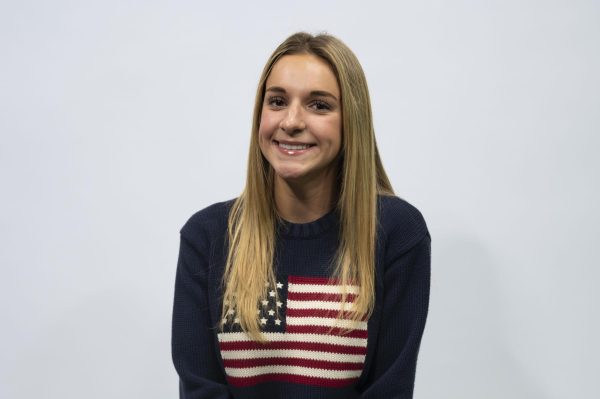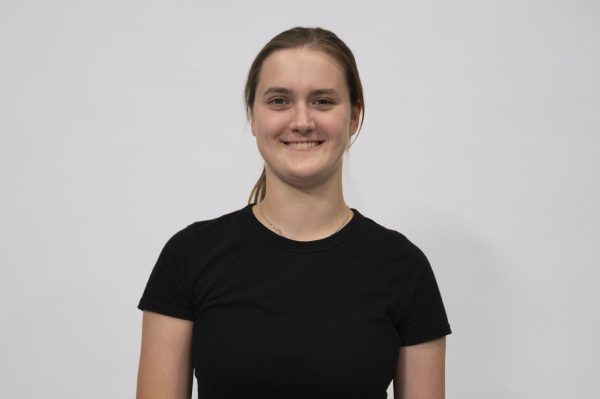On Oct. 12, attendees of the Boston Indigenous Peoples Day March made their way through Downtown Boston chanting “Indigenous Peoples Day now,” calling for the Massachusetts government to recognize Indigenous Peoples Day in place of Christopher Columbus Day.
Protest signs read “White supremacy has no place on stolen Indigenous lands,” and “We stand against genocide.” Other signs highlighted the issue of Missing and Murdered Indigenous Women, a movement that raises awareness about the high rates of unsolved abduction and murder cases of Indigenous women.
“We are here today to demand that the state change Christopher Columbus Day to Indigenous Peoples Day and follow the lead of some of the more progressive states in the country, but also the lead of a number of cities and towns in Massachusetts,” said Raquel Halsey, the executive director of the North American Indian Center of Boston, or NAICOB, and member of Mandan, Hidatsa and Arikara Nation. The change has been made in over 25 cities and towns in Massachusetts and over 60 cities and towns within the U.S.
The march called attention to other policies and issues affecting Indigenous people, including discrimination against Indigenous children in schools. Halsey said that every year, NAICOB works with Indigenous children across Massachusetts who face a range of discriminatory issues, from racist homework assignments to peers cutting their long hair. In many Indigenous cultures, hair is viewed as a part of one’s identity and represents strength, and is only cut in times of mourning.
Before the march began, speakers including Jean-Luc Pierite, president of the board of NAICOB and member of the Tunica-Biloxi Tribe of Louisiana, gave speeches to draw attention to the importance of the march and movement for Indigenous rights. Organizers carried out a prayer, encouraging remembrance and reflection. It was followed by a series of traditional dances and a few more speeches before the march itself began around 1 p.m. in Boston Common.

“We’re all here, not just to demand a day from Massachusetts, but to honor all of our demands and to honor our rights,” Pierite said.
Bill H.2989 193rd, “An Act Establishing Indigenous Peoples Day,” was introduced in 2023 and would officially proclaim the second Monday in October as Indigenous Peoples’ Day statewide in Massachusetts. The bill has not yet been passed.
“We really encourage folks by celebrating Indigenous Peoples’ Day to explore who their Native peers are, to get to know the Native organizations in the state, in the region, and really take a deeper look at history and make these changes,” Halsey said.
For centuries, Indigenous people worldwide have faced genocide, both physical and cultural, including at “Indian boarding schools,” or assimilation schools, in the 19th and 20th centuries and the outlawing of traditional cultural practices, like the Sun Dance. Currently, Indigenous communities are working to revive their traditions and languages to allow future generations to grow up in their cultures.
“I love that there are just glorious pow-wows now, with complete freedom to practice religion, which came in 1978 with the law that allowed them to practice their religion,” said Roberta Hayes-Bautista, a march attendee who identified as Tlaloltlalacan. “I see the young ones participating in these pow-wows. And I know that they’re soaking it in.”
March attendees reflected on what the movement meant to them personally and to future generations.
“This is a really good opportunity for me to connect with other and urban Indigenous folks and allies in the area and find community in this very large, predominantly white, city,” said Kiara Tanta-Quidgeon, a march attendee and member of the Mohegan Tribe who had recently relocated to Boston.
Marchers of all generations participated in the march, some donning traditional tribal wear.

“As Indigenous peoples, we always carry our children with us,” Pierite said. “It’s very important for us to have our children here because, when we’re no longer able to walk, it’ll be for the next generation to pick up this march.”
The Huntington News is dedicated to serving the Northeastern University community with original, professional reporting and creating an environment in which student journalists can learn from one another. Support an independent, free press at Northeastern University with your donation today.














